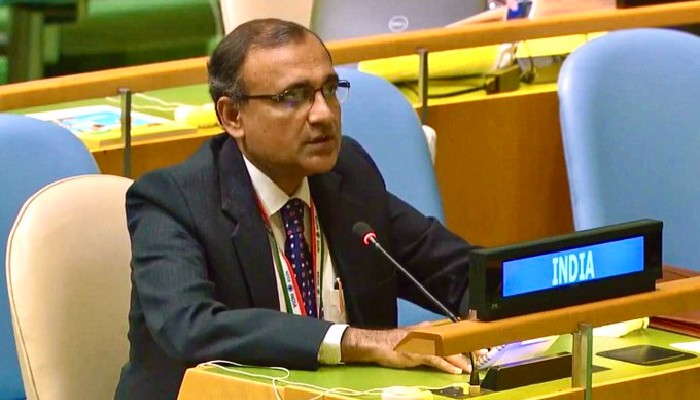India and Russia were the only countries to have opposed the draft resolution, while China abstained
India has voted against a UNSC draft resolution that attempted to securitize climate action and undermine the hard-won consensual agreements in Glasgow
“India is second to none when it comes to climate action and climate justice, but the Security Council is not a place to discuss either issue. In fact, the attempt to do so appears to be motivated by a desire to evade responsibility in the appropriate forum and divert the world's attention from unwillingness to deliver where it counts,” India's Permanent Representative to the United Nations T S Tirumurti said on Monday.
“Today's UNSC resolution attempts to undermine the hard-won consensus which we reached in Glasgow. This resolution would only sow the seeds of discord among the larger UN membership,” he told members of the UN Security Council explaining the country's decision to vote against a draft resolution in this powerful 15-membered body of the United Nations.
Negotiators from nearly 200 countries accepted a new climate agreement after the COP26 summit in Glasgow last month, which recognises India's intervention for the world to “phase down rather than phase out fossil fuels.”
India and Russia were the only countries to have opposed the draft resolution, while China abstained.
The draft resolution, sponsored by Ireland and Nigeria, sought to enable the Security Council to take up routine discussions on climate change from the perspective of its impact on peace and conflicts worldwide.
As of now, the appropriate UN forum to discuss all matters on climate change is the UN Framework Convention on Climate Change (UNFCCC), whose more than 190 members meet multiple times every year, including at a two-week annual conference towards the end of the year.
India and Russia have been opposing this move from the beginning, arguing that Security Council interventions on climate change will undermine the UNFCCC process, and provide disproportionate influence to a handful of developed countries on climate change decision-making.
 Contact Us
Contact Us  Subscribe Us
Subscribe Us









 Contact Us
Contact Us
 Subscribe
Subscribe
 News Letter
News Letter

